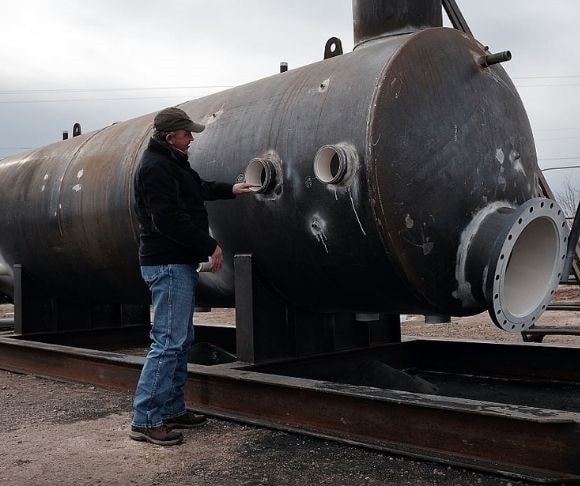The United States emergency Strategic Petroleum Reserve (SPR) possesses about 25 days’ worth of supply, recently falling below 500 million barrels to a 36-year low. The White House has been tapping into these inventories to help calm energy markets and, in theory, offer relief to the nation’s drivers. Unfortunately for the American people, new data suggest that the US administration is not injecting these supplies domestically but rather offering the immense stockpiles to foreign nations. President Joe Biden is ostensibly embracing the idea of windmills for Americans and US crude for everyone else.
Biden Giving Foreign Countries Relief
Phillips 66, the fourth-largest US oil refiner, recently shipped approximately 470,000 barrels of sour crude from an SPR storage site in Texas to Italy, according to recent customs data. Atlantic Trading & Marketing (ATMI) sent two cargo loads filled with 560,000 barrels to France. In addition, shipments of SPR crude were directed to China, India, and the Netherlands. This comes after three ships transported SPR crude to Europe in spring as part of efforts to replace Russian petroleum products.
In April, President Biden unveiled his plan to release roughly one million barrels per day from the emergency reserve until October. He purported that this would help lower energy prices, although market analysts generally concur that it has not done much to quash prices. At the same time, the initiative is draining the SPR, but US officials contend that this has been a necessary endeavor because withdrawing oil from the emergency reserve helped diminish the pain at the pump.
White House Press Secretary Karine Jean-Pierre refused to comment on the reports that foreign markets are receiving emergency crude, noting that she had yet to see the numbers. The Department of Energy issued a statement to The Independent, explaining that Biden’s authorizations to tap into the SPR have been instrumental in helping stabilize international markets.
“Oil is a commodity traded on the global market, and while the United States government does not control oil and gas companies, the commodity the industry sells or the market, the [Strategic Petroleum Reserve] remains a critical energy security tool to address global crude oil supply disruptions,” the agency stated. “The emergency releases the President authorized has helped to ensure stable supply of crude oil to help keep our economy running and mitigate the pain [Vladimir] Putin is causing at the pump. U.S. oil and gas companies are eligible for sales and exchanges from the SPR and have benefited from the releases to date.”

Cathy McMorris Rodgers (Photo by Kevin Dietsch/Getty Images)
With China receiving a considerable portion of America’s rainy-day fund, Beijing could now be in possession of the world’s largest emergency reserve, according to a letter from the ranking member of the House Energy and Commerce Committee Cathy McMorris Rodgers (R-WA) and Energy Subcommittee Republican leader Fred Upton (MI).
“China ramped up its purchases of crude oil from Russia and the United States to boost its own reserves, even as oil prices surged and President Biden called for a coordinated release,” the Republican leaders wrote. “China is reportedly in talks with Russia to buy even more oil for its strategic reserves, while the United States and the [European Union] pledged to ban Russian imports.”
This comes after the president sent a weekend tweet, urging gasoline stations to cut their prices. But with crude futures cratering this week and a gallon of gas coming down, can Biden declare victory?
The Truth About Energy Markets
As Liberty Nation recently reported, West Texas Intermediate (WTI) futures have cratered over the last few sessions, falling below $100 a barrel on the New York Mercantile Exchange. Brent, the international benchmark for oil prices, also slipped under $100 on London’s ICE Futures exchange. The selloff came out of nowhere, but it is inevitable that the administration take credit for the enormous drop in prices.
 Before Biden takes a victory lap on his bike, however, the reality of the situation is that investors are petrified about a recession. This has been the true cause for the 20% slide in oil over the last month. Should the US economy slip into a recession, traders are worried that it would reduce business and consumer demand.
Before Biden takes a victory lap on his bike, however, the reality of the situation is that investors are petrified about a recession. This has been the true cause for the 20% slide in oil over the last month. Should the US economy slip into a recession, traders are worried that it would reduce business and consumer demand.
“Part of what’s going on with the oil price crash is concern that the Fed will be too aggressive in raising rates thereby killing oil demand and pushing the economy into a recession,” noted Phil Flynn, an energy commodities expert. “At the same time, people are concerned about demand destruction because of high prices. Peripheral talk about weaker than expected demand over the 4th of July holiday also spurred some of the selling.”
Meanwhile, China’s COVID Zero strategy is still lingering in the background, with Shanghai launching mass testing, leading to fears that there will be more lockdowns and restrictions that could threaten the world’s second-largest economy. Plus, speaking of Beijing, the Chinese government is attempting to corner the Russian energy market, representing about 15% of the nation’s crude demand.
A Recession Will Save America?
The collapse in prices has less to do with Biden’s policies and more to do with market dynamics. If fears over an economic downturn are the primary factor in the decline in energy markets, it is extraordinary that a recession is what will help President Biden finally solve the crisis in oil and gas prices. But, of course, even if the economy averts negative GDP growth or comes out of a recession, the underlying problems facing the industry will go unresolved, eventually sending the US back to square one.




